Here's a quick chat about greedy and pessimistic:
Here is test data:
Example word followed by another word and then more
Here are two regex:
Example.*word
Example.*?word
The first is greedy. Regex will match Example then it will take .* which consumes everything all the way to the END of the string and the works backwards spitting a character at a time back out, trying to make the match succeed. It will succeed when Example word followed by another word is matched, the .* having matched word followed by another (and the spaces at either end)
The second is pessimistic; it nibbled forwards along the string one character at a time, trying to match. Regex will match Example then it'll take one more character into the .*? wildcard, then check if it found word - which it did. So pessimistic matching will only find a single space and the full match in pessimistic mode is Example word
Because you say you want the whole string after Example I recommend use of a greedy quantifier so it just immediately takes the whole string that remains and declares a match, rather than nibbling forwards one at a time (slow)
This, then, will match (and capture) everything after Example:
\sExample(.*)
The brackets make a capture group. In c# we can name the group using ?<namehere> at the start of the brackets and then everything that .* matches can be retrieved with:
Regex r = new Regex("\sExample(?<x>.*)");
Match m = r.Match("Exampleblahblah");
Console.WriteLine(m.Groups["x"].Value); //prints: blahblah
Note that if your data contains newlines you should note that . doesn't match a newline, unless you enable RegexOptions.SingleLine when you create the regex

